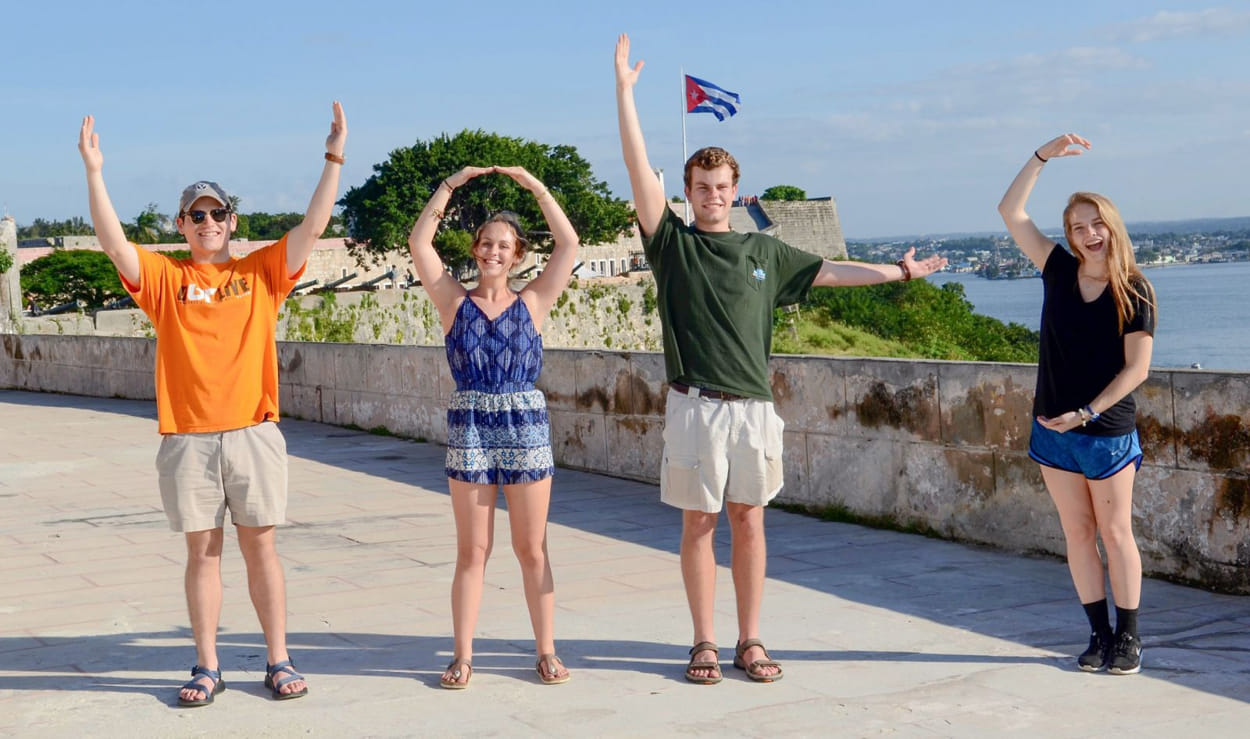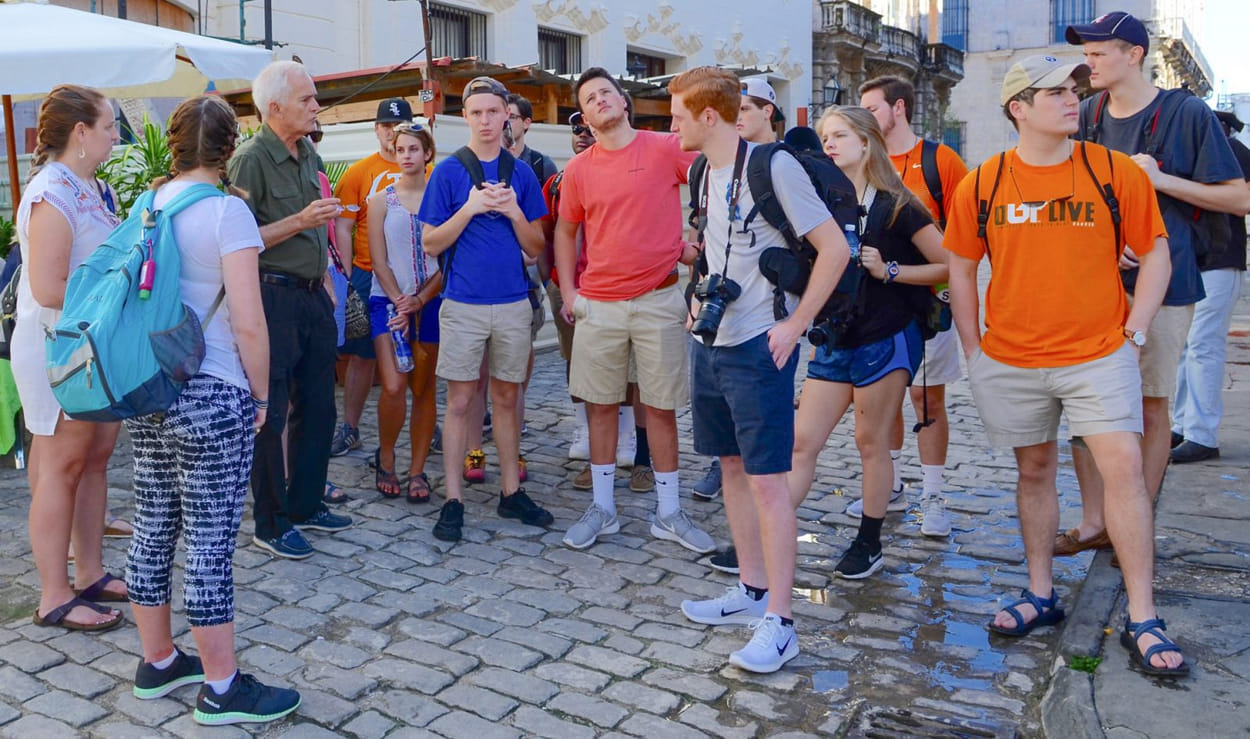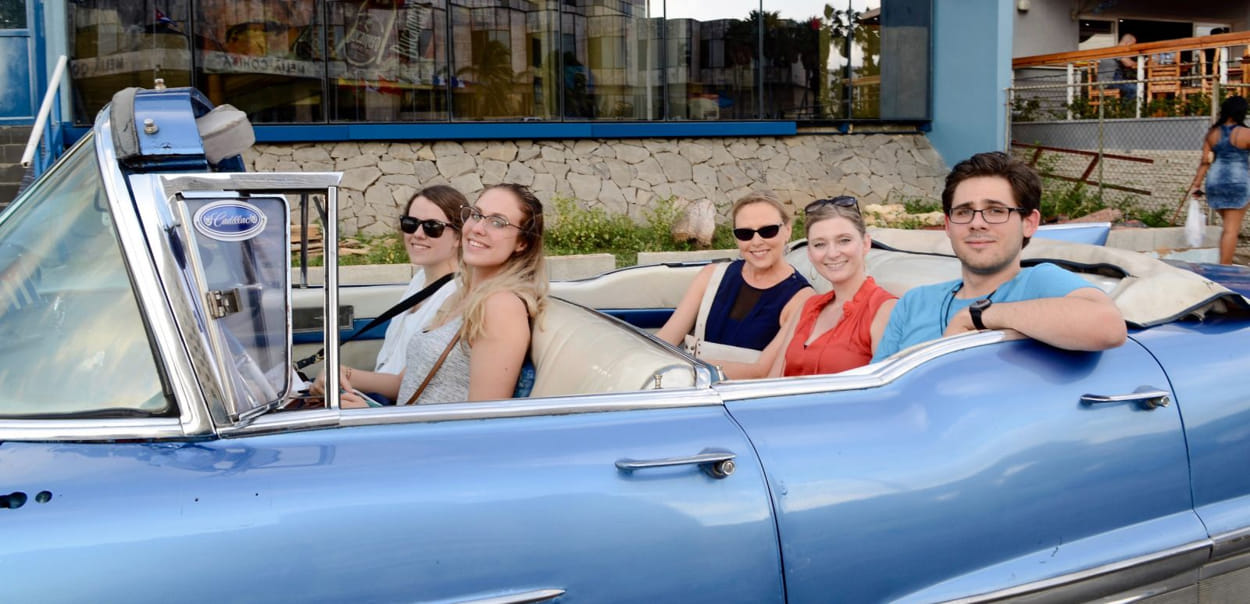Shuffling in from the January cold, a group of 17 rising Haslam College of Business sophomores shed their coats and layers of sweaters to sit together and reflect on their trip to Cuba during December.
Not only did they reminisce about the Caribbean weather, they swapped stories about the experiences that made the greatest impressions on them. Nick Trushel, a finance major, said he at first hesitated about visiting Cuba during winter break instead of joining his friends at home.
“I hadn’t seen my friends in months, so I wasn’t completely sure,” Trushel said. “It ended up being one of the greatest weeks in my life. It pushed me beyond my comfort zone. Having all of these new experiences was life-changing.”

This cohort of students had recently embarked on the 2016 First Year Experience in Cuba, a program seeking to engage underclass business students with global business issues and to expose them to study abroad.
In Cuba, students learned not only about the historical context of the U.S.-Cuba relationship, but also about the dynamic changes in the Cuban economy. They observed some of the new entrepreneurial business opportunities that have emerged as part of a fledgling private sector in an otherwise communist system.
The trip was led by Sara Easler, director of international programs and study abroad, and Kelly Hewett, associate professor of marketing. According to Easler, the purpose of the trip was for students to begin thinking about the intersection of business, government and culture.
“The expectation wasn’t that they leave country as experts,” Easler said. “Instead, we wanted students to be better prepared to observe, analyze, reflect and critique based on their experiences. We wanted them to bring this back as part of their business education and personal development.”

At Cuba Libro, a bookstore and community center in Havana, several of the students met a local woman who attended medical school but passed up a job in the national health system in favor of working as a tattoo artist in the country’s budding private sector.
“She wanted to be a surgeon but couldn’t get the specialty she wanted,” said Sarah Tanner, a public administration major. “Instead, she makes more money as a private-sector tattoo artist. It was eye-opening because we place a high level of prestige and value on certain professions, but it’s different there.”
The students agreed their best source of information about Cuba came from talking to its residents. They visited various locales including a tobacco farm, the Hotel Nacional de Cuba, a state-subsidized barber shop and a memorial to José Martí, a Cuban national hero.
“The José Martí memorial upset me because it was so nice, and we’d just seen so many areas that I would consider slums,” Tanner said. “They obviously invested a lot of money into the memorial by keeping it illuminated and filling its fountains with clean water. Meanwhile, the hotel had blackouts and water shortages. It frustrated me.”
Jay Stanga, a public administration major as well, had a similar reaction.
“I wrote about that in my final paper,” Stanga said. “It’s like the government prioritizes its international image over the day-to-day lives of the people they are actually supposed to serve.”
Stanga added that his perspective on Cuba changed multiple times during the trip. “I thought there would be a heavy military presence, but it wasn’t as controlled and constrained as I thought it would be,” he said.
Will Hensley, a business analytics major, was struck by Cubans’ ability to dance. “They learn to dance salsa as little kids in the same way that we would learn to throw a baseball or football,” Hensley said. “It’s really impressive.”

For Sarah Tanner, the experience that felt most uniquely Cuban during the trip was visiting the Coppelia ice cream parlor in Havana. The state-run company sells scoops of ice cream for five Cuban cents, making it affordable to the local population, according to Tanner.
“It’s a huge place and it’s not very well organized, so you end up waiting an hour and a half,” Tanner said. “They don’t have all the flavors on the menu, but the attitude I kind of picked up on is that people feel having inexpensive ice cream and plenty of time to socialize is a fundamental right for Cubans.”
Tanner added that it was interesting to see people patronize a business “not necessarily because they are motivated by the product, but because they want to socialize.”

